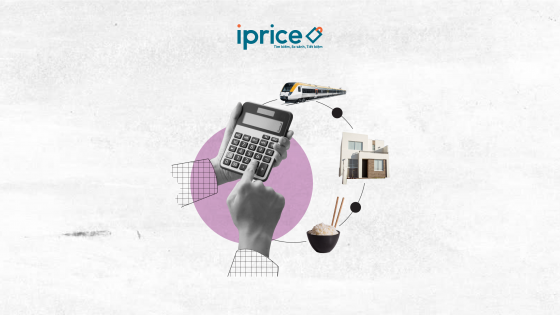Despite a challenging year due to social and economic uncertainties, the 2021 Edelman Trust Barometer revealed that trust in all Malaysian institutions – government, business, media, and NGOs – has increased as a result of assertive action in response to the pandemic. However, in the era of information bankruptcy, trust remains fragile and dependent on how institutions fair in leading with real world actions in the post-pandemic era.
Trust in Malaysia
The 2021 Edelman Trust Barometer saw Malaysia achieve an average Trust Index score of 66 pts, rising by 6 pts from 2020 and climbing two spots to the 7th position on the Global Trust Index ranking. Malaysia’s Trust Index was higher than the APAC (62 pts) and Global (56 pts) averages. The country’s encouraging results were propelled by affirmative institutional action in managing the unprecedented COVID-19 pandemic challenge.
Nonetheless, the survey also highlighted that trust is built on fragile foundations, as escalating pandemic fears have created a dramatic increase in the urgency for these institutions to find solutions for critical societal problems. When asked whether certain issues have become more or less important since last year, improving the healthcare system has become 62 pts more important, along with addressing poverty (53 pts) and improving our education system (53 pts). This suggests that the most foundational building blocks of society need a reset.
“We are living in a time when Malaysians’ trust in institutions carries high stakes in the recovery of the country’s public health and economy,” said Christopher de Cruz, Group Director and Head of Crisis Management at Edelman Malaysia. “This year’s Trust Barometer has highlighted some of the ways that the government, employers, NGOs and the media can build greater trust, as they continue on the path towards pandemic recovery for the nation.”
Malaysians More Worried About Job Loss Than Contracting COVID-19
Edelman’s study has shown that contracting COVID-19 is not the concern Malaysians are most worried about (77%). A larger percentage of Malaysians are both concerned and fearful about job loss (89%), followed closely by cyber security (77%) and climate change (76%). In a year of mandatory stay-at-home orders, 71% are also worried about losing their personal freedoms.
Additionally, the pandemic is not only a concern in itself, but it has also heightened the concerns Malaysians have had before the pandemic. 65% worry that the pandemic will accelerate job loss due to automation, while more than half of surveyed respondents (53%) have witnessed layoffs or reductions in the workforce of their company they work for.
This trend is not unique to Malaysia alone, as inequities are deepening around the world with over 62% of the global population agreeing that those with less money, education and fewer resources seem to be unfairly burdened with the most suffering, risk of illness and need to sacrifice during the ongoing pandemic. The Malaysian government’s intervention with various stimulus packages for the B40 group over the past year is thus timely in addressing these concerns.
Raging Infodemic Feeds Mistrust
In a fearful, crisis-ridden world, the survey findings also revealed that people have lost faith in the traditional markers of information credibility, leading to an epidemic of misinformation. Although Malaysians had more trust in institutions overall, they generally do not trust societal leaders such as journalists (51 pts), government officials (53 pts) and CEOs (57 pts) to do what is right – instead placing their trust in leaders that are more ‘local’ and familiar, such as people in their own communities (68 pts) and their employer’s CEO (68 pts).
Additionally, 65% believe most news organisations are more concerned with supporting an ideology or political position than informing the public about truthful facts, while almost half of surveyed respondents believe the media is not being objective and non-partisan in their news reporting. Without trust in societal leaders and news organisations, Malaysians are seeking alternative sources for information, increasingly leaning in on social media (+9 pts) and search (+4 pts) to shape their opinions rather than conventional media channels.
This is a concern as only 29% of Malaysians practice good information hygiene, which is defined as knowing the best practices to manage one’s information diet. The study showed that 65% of respondents share or forward news items that they find to be interesting, but of those, only 29% practice good information hygiene. This suggests that a significant amount of unvetted information is being consumed and disseminated among Malaysians.
A New Mandate for Business & CEOs
Amidst this landscape of information distrust, businesses have emerged as the single most credible and trusted source of information for most Malaysians, with 66% voting ‘My Employer’ as the most trusted source of information to help navigate the crisis, even higher than government communications (60%) and news media reports (63%).
The greatest opportunity for businesses to gain trust is by serving as a guardian of information quality, which increased the likelihood of trust by 5.8%. Additionally, business is expected to act for the long term: embracing sustainability (+5.7%), delivering a robust health and safety response to COVID-19 (+4.8%), driving economic prosperity (+4.7%) as well as focusing on long-term thinking over short-term profits (+4.6%) are actions associated with an increase in trust.
In terms of leadership, 71% of Malaysians now expect CEOs to lead with empathy in driving positive change and demonstrating accountability to the communities they serve. 83% percent agree that CEOs should step in to complement the government’s efforts in fixing societal problems. Top of the to-do list for CEOs is to publicly speak out on societal challenges ranging from the pandemic’s impact (67%), job automation (63%), and local community issues (52%).
But the business sector cannot go at it alone. It must partner with other institutions to address societal challenges, whilst also ensuring that both consumers and employees have a seat at the table. 79% of consumers and 76% of employees believe their voices should not only be heard, but also contribute to decisions that are made by a company. Activism is also on the rise in the workplace, with 58% of those who are employed agreeing that they are more likely today, than a year ago, to voice their objections and engage in workplace protests if they strongly disagree with a company action or policy.
“The mandate from the Malaysian public is clear: institutions must partner with one another to solve societal issues. Business, government, media and NGOs must find a common purpose and take collective action to address inequalities, starting with foundational problems. Especially in times of turbulence and volatility, trust is what holds society together, and how growth is rebuilt for the nation at large.” said de Cruz.
Other key findings from the 2021 Edelman Trust Barometer include:
- Malaysians conveyed what they consider to be more or less important to them over the last year, with a dramatic net gain for worker/customer safety (+58 pts), job skills training programs (+58 pts), regular employee communications (+56 pts), and a diverse and representative workforce (+51 pts).
- Vaccine hesitancy remains a major hurdle in Malaysia, with only 28% among those willing to get vaccinated preferring to do so as soon as possible, whereas 41% would prefer waiting six months to a year
On working from home, the results have showed that among those who have a choice, 69% are choosing to work from home with a major reason being the increased risk of contracting COVID-19. For the 31% who have chosen to return to the office, the most significant reason, cited by 61%, is that they are more productive in the office.
2021-Edelman-Trust-Barometer_Malaysia-Country-Report_22-AprDo you have an article, infographic, podcast, presentation slides, press release or a key individual from your organisation that you'd like to highlight on Marketing In Asia? Head on over to Upload Your Content for more info.



















